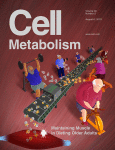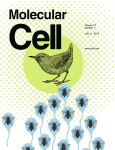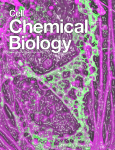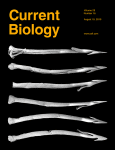Speaker articles
Take a look at what some of our Metabolites in Signaling and Disease speakers have published recently and chat with them about their work in Lisbon, Portugal.
Keynote Speaker
Peter Ratcliffe, University of Oxford, UK
Conserved N-terminal cysteine dioxygenases transduce responses to hypoxia in animals and plants
Speakers
Andrea Ablasser, Swiss Federal Institute of Technology Lausanne, Switzerland
Regulation of cGAS- and RLR-mediated immunity to nucleic acids
Johan Auwerx, École Polytechnique Fédérale, Switzerland
The RNA-Binding Protein PUM2 Impairs Mitochondrial Dynamics and Mitophagy During Aging
Kivanc Birsoy, The Rockefeller University, USA
CHP1 Regulates Compartmentalized Glycerolipid Synthesis by Activating GPAT4
Anne Brunet, Stanford University, USA
Linking Lipid Metabolism to Chromatin Regulation in Aging
Jens Brüning, Max Planck Institute, Germany
IL-6/Stat3-Dependent Induction of a Distinct, Obesity-Associated NK Cell Subpopulation Deteriorates Energy and Glucose Homeostasis
Laurent Le Cam, Montpellier University, France
Mitochondrial MDM2 Regulates Respiratory Complex I Activity Independently of p53
Judy Campisi, Buck Institute for Research on Aging, USA
SILAC Analysis Reveals Increased Secretion of Hemostasis-Related Factors by Senescent Cells
Navdeep Chandel, Northwestern University, USA
Mitochondrial complex III is essential for suppressive function of regulatory T cells
Edward Chouchani, Harvard Medical School, USA
New Advances in Adaptive Thermogenesis: UCP1 and Beyond
Heather Christofk, University of California, Los Angeles, USA
Differential Metabolic Reprogramming by Zika Virus Promotes Cell Death in Human versus Mosquito Cells
Ana Domingos, University of Oxford, UK
Obesity: a neuroimmunometabolic perspective
Ayelet Erez, Weizmann Institute of Science, Israel
ASL Metabolically Regulates Tyrosine Hydroxylase in the Nucleus Locus Coeruleus
Christoph Hess, University of Cambridge, UK, and University of Basel, Switzerland
SDHA gain-of-function engages inflammatory mitochondrial retrograde signaling via KEAP1–Nrf2
Jared Rutter, University of Utah, USA
ACP Acylation Is an Acetyl-CoA-Dependent Modification Required for Electron Transport Chain Assembly
Celeste Simon, University of Pennsylvania, USA
Arginase 2 Suppresses Renal Carcinoma Progression via Biosynthetic Cofactor Pyridoxal Phosphate Depletion and Increased Polyamine Toxicity
Scott Summers, University of Utah, USA
Targeting a ceramide double bond improves insulin resistance and hepatic steatosis



















